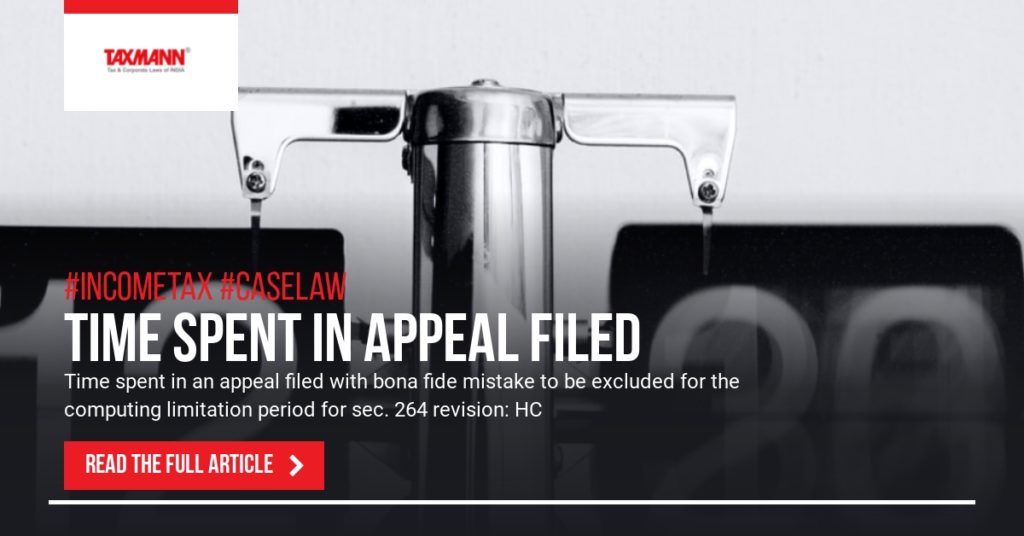Time spent in appeal filed with bona fide mistake to be excluded for computing limitation period for sec. 264 revision: HC
- Blog|News|Income Tax|
- 2 Min Read
- By Taxmann
- |
- Last Updated on 11 April, 2022

Case details: KLJ Organic Ltd. v. CIT - [2022] 136 taxmann.com 353 (Delhi)
Judiciary and Counsel Details
-
- Manmohan and Navin Chawla, JJ.
- Gaurav Jain, Ms. Akshita Goyal, and Shubham Gupta, Advs. for the Petitioner.
- Sanjay Kumar, Adv. for the Respondent.
Facts of the Case
The assessee filed a revision petition filed under section 264. The Commissioner of Income-tax rejected said petition on the ground of limitation. The assessee filed the writ petition seeking a direction for the Commissioner of the Income-tax (CIT) to consider the revision petition under section 264.
Assessee contended that it was under bonafide mistake of law and relying upon previous orders passed on the same issue, filed an appeal under section 248 under the belief that order passed by AO was appealable.
Later assessee came to know that the said appeal was not maintainable as it had not paid the tax determined in the order passed under section 195(2). Thus, it withdrew the appeal without wasting any time and filed a review petition under section 264. However, the CIT dismissed the revision petition on the ground of limitation.
High Court Held
The Delhi High Court held that the assessee, under bonafide belief, filed an appeal which was not maintainable as the tax required to be paid wasn’t deposited. Thus, Section 14 of the Limitation Act, 1963 is attracted, and the assessee is entitled to the exclusion of time spent in prosecuting the proceeding bona fide in a court without jurisdiction.
Accordingly, the time spent by the assessee in prosecuting the appeal under section 248 was to be excluded; thus, the revision petition filed under section 264 would be within time.
Disclaimer: The content/information published on the website is only for general information of the user and shall not be construed as legal advice. While the Taxmann has exercised reasonable efforts to ensure the veracity of information/content published, Taxmann shall be under no liability in any manner whatsoever for incorrect information, if any.

Taxmann Publications has a dedicated in-house Research & Editorial Team. This team consists of a team of Chartered Accountants, Company Secretaries, and Lawyers. This team works under the guidance and supervision of editor-in-chief Mr Rakesh Bhargava.
The Research and Editorial Team is responsible for developing reliable and accurate content for the readers. The team follows the six-sigma approach to achieve the benchmark of zero error in its publications and research platforms. The team ensures that the following publication guidelines are thoroughly followed while developing the content:
- The statutory material is obtained only from the authorized and reliable sources
- All the latest developments in the judicial and legislative fields are covered
- Prepare the analytical write-ups on current, controversial, and important issues to help the readers to understand the concept and its implications
- Every content published by Taxmann is complete, accurate and lucid
- All evidence-based statements are supported with proper reference to Section, Circular No., Notification No. or citations
- The golden rules of grammar, style and consistency are thoroughly followed
- Font and size that’s easy to read and remain consistent across all imprint and digital publications are applied



 CA | CS | CMA
CA | CS | CMA
